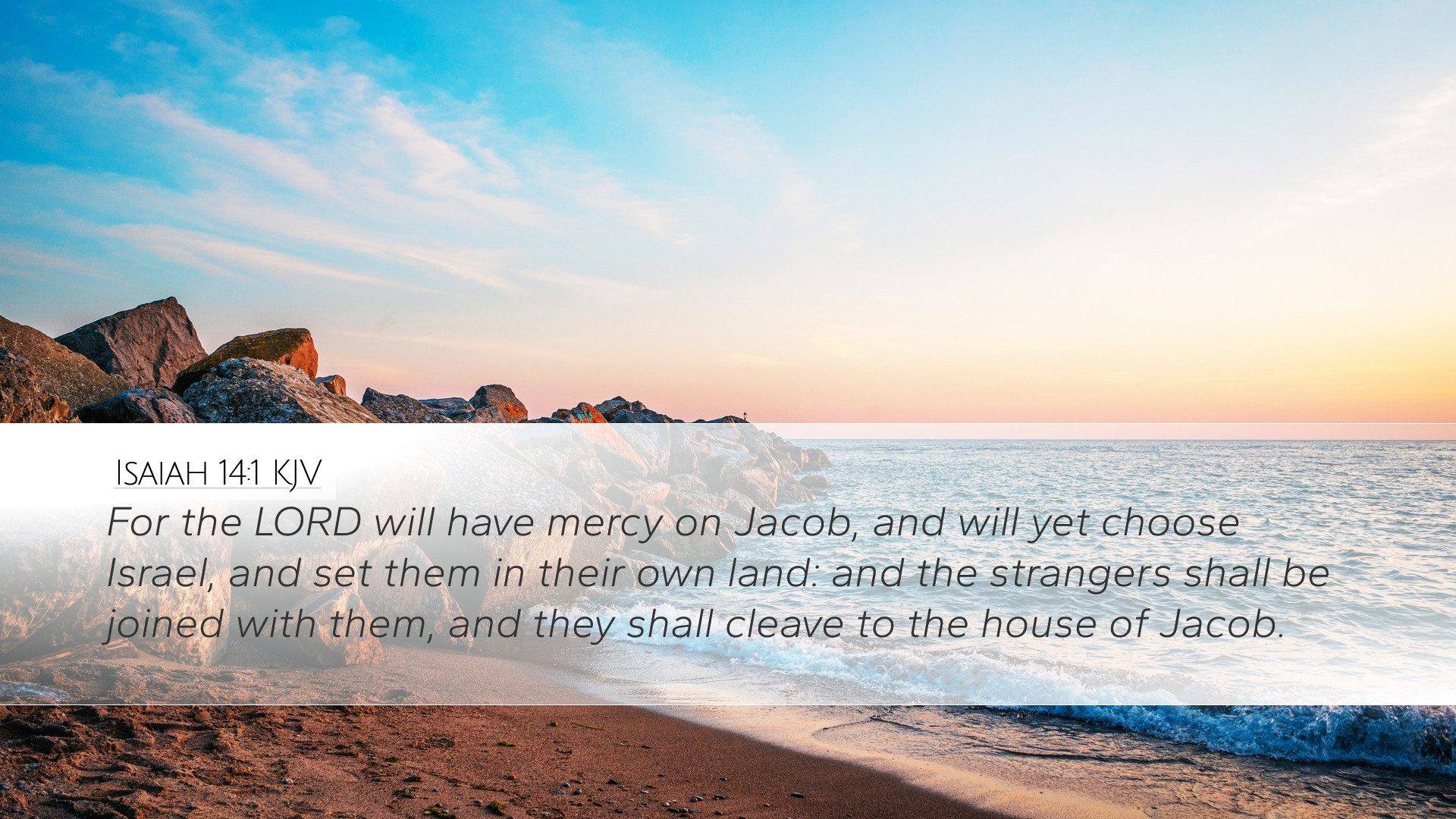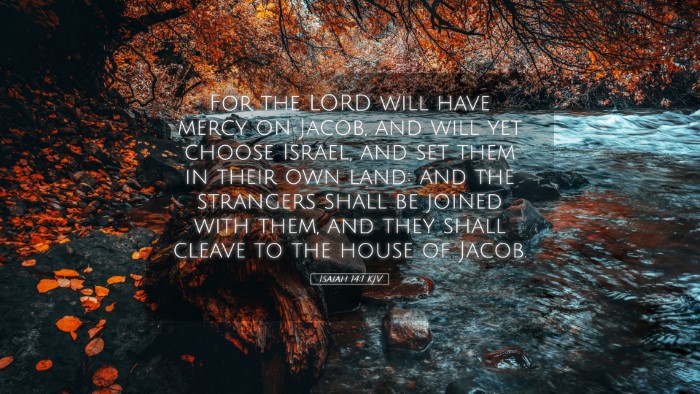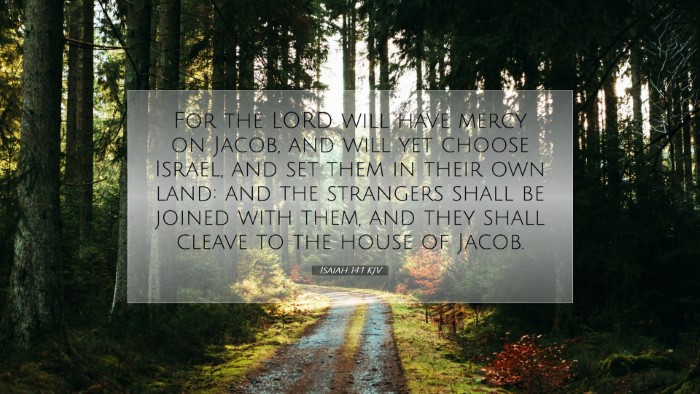Isaiah 14:1 - Commentary Summary
Isaiah 14:1 states, "For the LORD will have compassion on Jacob and will again choose Israel and will settle them in their own land; foreigners will join them and unite with the descendants of Jacob." This verse encapsulates a profound promise of restoration and hope for the people of Israel following their exile.
Overview of the Passage
This passage serves as a pivotal statement in the prophetic book of Isaiah, offering reassurance after a series of proclamations of judgment against nations, particularly Babylon. It highlights the theme of God’s unfailing compassion and covenant faithfulness.
Theological Implications
- Divine Compassion: The opening phrase suggests that despite Israel’s disobedience and the subsequent punishment, God’s commitment to His people remains steadfast.
- Covenant Relationship: The notion of choosing Israel again reflects the enduring covenant that God established with Jacob, reminding readers of their special status before Him.
- Restoration: The promise of settlement in their own land denotes a physical and spiritual restoration, crucial for a people deeply impacted by exile.
- Inclusivity: Mention of foreigners joining the Israelites anticipates a broader vision for God's kingdom, where people beyond ethnic Israel are welcomed into God’s family.
Insights from Public Domain Commentaries
Matthew Henry’s Commentary
Matthew Henry emphasizes God’s mercy toward His people. He articulates that the restoration of Israel demonstrates God’s compassion, stating, “He will show He is not only angry but will take care of his displeased people.” Henry notes that the return signifies a deep-seated change in the relationship between God and Israel, marked by renewed favor and the reinstatement of His people in the land of promise.
Albert Barnes’ Notes on the Bible
Albert Barnes expounds on the context of the passage, highlighting that it serves as a direct contrast to previous judgments and prophecies of destruction. He writes, “The mercy of God will triumph over judgment, for He will have compassion on Jacob, meaning that despite their unfaithfulness, God’s love prevails.” Barnes also points to the importance of the phrase “foreigners will join them,” suggesting that the expansion of God's people will include the Gentiles, which aligns with the New Testament fulfillment of Jesus’ missionary mandate.
Adam Clarke’s Commentary
Adam Clarke reflects on the historical implications of this verse, considering the plight of the Israelites during and after the Babylonian captivity. He underscores the significant aspect of “choosing Israel” again as an assertion of God's sovereign will in history. Clarke notes, “Though they should suffer, God will not ultimately forsake them.” He also highlights the unification of “foreigners” with the Israelites as prophetic of the inclusive nature of the future kingdom of God, resonating with the later teachings of Christ regarding the inclusion of the Gentiles.
Application for Pastors and Theologians
Isaiah 14:1 serves not only as a historical promise but also poses rich implications for contemporary faith communities. Leaders and scholars can draw several applications from this text:
- Hope Amid Despair: This passage reminds communities of faith that divine compassion can restore even in times of rebellion or exile.
- Inclusive Vision: It challenges churches to embrace diversity within their congregations, reflecting the call for unity beyond ethnic and cultural boundaries.
- Call to Faithfulness: The context of restoration emphasizes the importance of remaining faithful to God’s covenant, encouraging believers to live in accordance with His will.
- The Nature of God: The text serves as a theological foundation for understanding God's character as one who desires reconciliation with His people.
Conclusion
Isaiah 14:1 stands as a beacon of hope, illuminating God's unwavering compassion and commitment to His people. It encourages believers to trust in God's ability to restore and unify His people, affirming that His plans extend beyond the individual to encompass a broader, divine design that includes all of humanity. The insights drawn from notable commentaries enrich our understanding, providing profound theological and practical implications for faith communities today.


